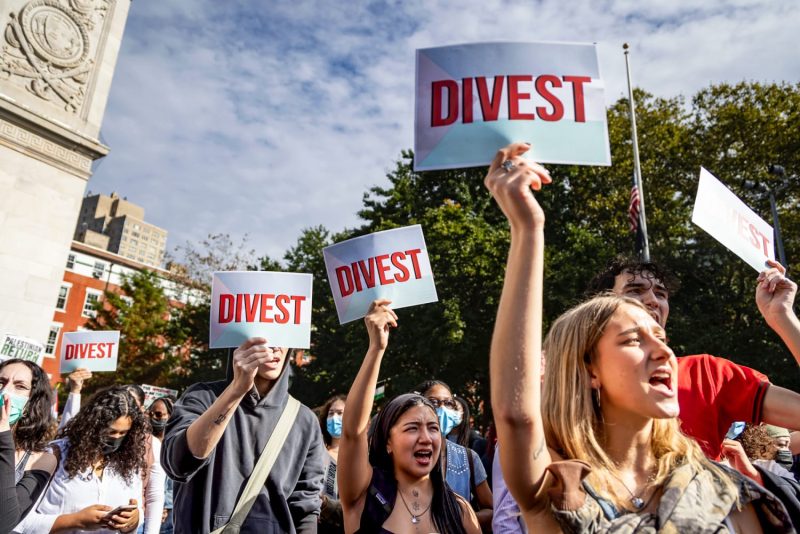College Protesters Want Their Schools to Divest from Ties to Israel – Here’s What That Means
The demand for divestment from ties to Israel has been a highly contentious issue on college campuses across the United States. Student activists advocating for divestment aim to pressure their educational institutions into cutting financial ties with companies that do business with or support the state of Israel. This movement is rooted in student activism and a desire to promote social justice and equality for Palestinians living under Israeli occupation.
The call for divestment emerged as a response to the ongoing Israeli-Palestinian conflict and concerns over Israel’s human rights violations against Palestinians. Students feel a moral obligation to stand in solidarity with the oppressed and advocate for Palestinian rights by targeting companies that profit from the occupation of Palestinian territories.
Divestment campaigns typically involve urging universities to divest their endowments from companies that are complicit in Israel’s occupation of Palestinian lands. These companies are often involved in sectors such as defense, technology, and infrastructure, providing direct or indirect support to Israeli military operations in the occupied territories. By cutting ties with these entities, students believe they can pressure Israel to change its policies towards Palestinians.
Proponents of divestment argue that it is a peaceful and non-violent way to support the Palestinian cause and hold Israel accountable for its actions. They see divestment as a form of economic leverage that can influence corporations and governments to reconsider their relationships with Israel. By divesting from companies that profit from occupation, colleges can send a strong message condemning human rights abuses and promoting justice and equality for all.
However, opponents of divestment argue that it is a one-sided and simplistic approach to a complex geopolitical issue. They believe that such campaigns demonize Israel and ignore the broader context of the conflict, including threats to Israel’s security and the historical tensions between Israelis and Palestinians. Critics also contend that divestment efforts may stifle constructive dialogue and cooperation between different communities on campus, leading to division and polarization.
University administrators often find themselves in a difficult position when faced with divestment demands. Balancing the principles of free speech, academic freedom, and responsible investment, they must navigate competing interests and values while upholding the institution’s reputation and financial stability. Some universities have chosen to engage with student activists, establish committees to review investment policies, or explore alternative ways to address social justice concerns without divesting from Israel-related companies.
In conclusion, the call for divestment from ties to Israel is a contentious and polarizing issue on college campuses. Student activists advocating for divestment see it as a powerful tool to promote social justice and Palestinian rights, while opponents view it as a flawed approach that oversimplifies a complex conflict. As the debate continues, universities must navigate the challenging terrain of activism, investment, and ethical responsibility to chart a course that aligns with their values and priorities.
